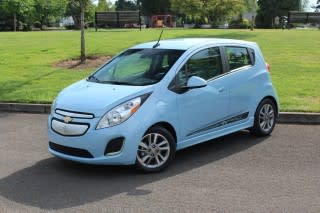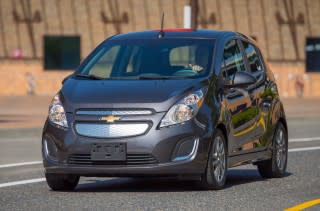Why We Call Out Compliance Cars Among All Electric Vehicles
Often reader comments raise issues that are worth covering for a broader audience.
So when our reader Brian Lakatos wrote to ask us about the tone of recent coverage of electric cars, we responded at some length--and then decided to turn the response into an article.
(Plus, we hate wasting copy that can be adapted and reused.)
DON'T MISS: U.S. Plug-In Electric Car Sales In Apr: Pace Continues Steady
Lakatos wrote:
Your "Electric Car Price Guide" and news articles seem prejudiced towards the Nissan Leaf (certainly the first-and-best-seller, but not the best choice for everyone) & Kia Soul EV (only [a few hundred] sold through March 2015 since its intro in October 2014 -- really deserving of praises??) and against "mere compliance" vehicles.
It seems like the Honda Fit EV is indeed a "mere compliance" vehicle, but that the Fiat 500e is a bit more than that (in spite of Fiat Chrysler CEO Sergio Marchionne's disdain) and not deserving of the condescending description in your website.



Why the unfair treatment?
The balance of this article adapted from our response to Lakatos.
We believe our site was the first to define the term "compliance car" for a general audience, fully three years ago now.
ALSO SEE: Electric Cars: Some Are Real, Most Are Only 'Compliance Cars'--We Name Names (May 2012)
We feel it's important to highlight for both general readers and potential car buyers which battery-electric vehicles are compliance cars, and which aren't, for several reasons.
First, some people will prefer to buy a car from a maker who builds electric cars because it wants to--because it sees a business in providing zero-emission vehicles--rather than solely because it has been forced to do so by regulation.

 Yahoo Autos
Yahoo Autos 
